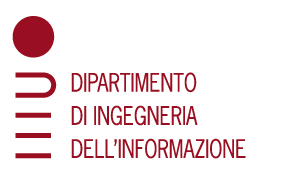Abstract
Music is generally considered to convey emotional contents such as feelings, or to recollect events or to describe locations. When words are added to music other elements can be introduced as love or politics or religion.But can other forms of 'data' (such as space or time or movement information) be carried by music as a form of 'lateral' (rather than subliminal) message?Using extracts from his own compositions the author will give some hints of the possibility to create something like a 'secondary' or 'side-communication'.
BIO:
Claudio Ambrosini, born in Venice, studied Electronic Music and Ancient Instruments at Venice Conservatory. After finishing also his classical studies, he graduated at Venice (History of Music) and Milan (Linguistics) Universities. Important to his development were his meetings with Bruno Maderna and Luigi Nono.Ambrosini has composed vocal, instrumental, electronic works, oratorios, operas and ballets, all characterized by his extensive instrumental research and by his personal style. He also had many experiences in multimedia (video, photography, installations) in museums or art galleries.Ambrosini has received various prizes and has taken part in international festivals such as the Festival of Contemporary Music of the Venice Biennale; of that of Avignon, Strasbourg, Brussels, Helsinki, Huddersfield, Stockholm, Vancouver, Montreal, New York, Chicago, Los Angeles, Sidney, Ludwigsburg; as well as series of concerts at the IRCAM in Paris, at La Scala in Milan, at the Gulbenkian Foundation in Lisbon and the Gaudeamus in Amsterdam, at the Mozarteum in Salzburg, the Akademie der Kunste in Berlin, the Musical Autumn in Warsaw, the Maggio Musicale in Florence, the season of the Munich Philharmonic, Radio France's series 'Perspectives du XX siècle', GRAME etc.Ambrosini has received several commissions, principally from the Venice Biennale, the Italian Radio (RAI), the West German Radio (WDR), the French Ministry of Culture, the Festival of Nations, L'Itineraire, Milano Musica and several other and institutions and theatres, like La Fenice.His music has been conducted, among the others, by Riccardo Muti, Lev Markiz, D. Masson, P. Mefano, G. Nowak, Robert HP Platz, Y. Prin, Stefan A. Reck, Ed Spanjaard, John Störgards, Pierre-André Valade.In 1976 Ambrosini began to take an interest in computer music at the Padua Center for Computational Sonology (CSC). He also collaborated with Luciano Berio's Tempo Reale Institute.Since 1979 Ambrosini has led the Ex Novo Ensemble and since 1983 also the CIRS, International Center for Instrumental Research, both of which he founded in Venice.In 1985 Ambrosini was the first Italian composer to receive the Prix de Rome from France and to stay at the Villa Medici, the French Academy in Rome. In the same year he was chosen to represent Italy over the European Year of Music. In 1986 he was chosen to represent Italy at the UNESCO Paris Rostrum.In 2007 he was awarded the Golden Lion for Music at the Venice Biennale.






